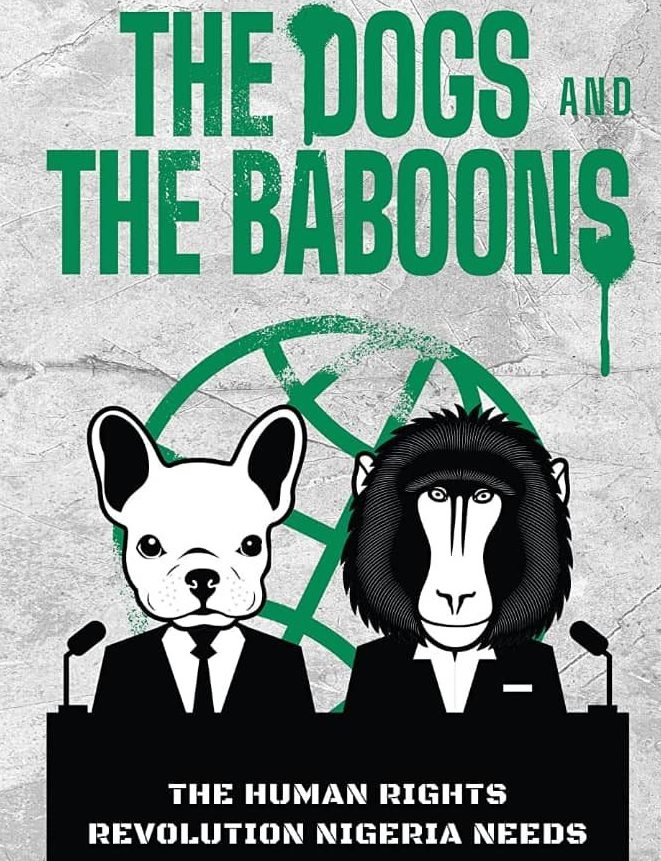Human rights scholar and son of the leader of the Movement for the Actualisation of the Sovereign State of Biafra (MASSOB), Dr. Allwell Uwazuruike, will be launching his book this weekend, titled “The Dogs and the Baboons”.
The book creatively explores the human rights landscape in Nigeria, intricately exploring issues such as police brutality, prolonged detentions, clampdown on media and protesters, corruption, poor healthcare, women’s rights, and self-determination. Employing his expertise in human rights alongside a rich experience growing up in Nigeria, Uwazuruike explains varying concepts with rich general and personal examples, stories, experiences, and anecdotes.
Uwazuruike, shows the reader a glimpse into the life of activism, state clampdown, and civil unrest. The book explores sensitive encounters with the police including family arrests and treason trials.
The Dogs and the Baboons begin on an interesting and confident note. Firstly, the dedication of the book reads “For us all”. The author then proceeds to make an unusual albeit brave “commitment” wherein he pledges to issue a “recompense” to anyone who, after reading the book, believes that they have not been engaged or challenged by it.
In the introduction, the author explains the reason for the book: to reach the people that truly need the information contained in it. The style of the introduction is informal, reading like fiction in places, and sometimes, almost poetic. It draws you into the author’s mind and makes you want to go deeper with him through the journey that is the book. The latter parts of the introduction give a glimpse into the author’s life growing up and into the early years of his legal practice. There are interesting narrations of magistrates demanding bribes for bail and police arresting couples for being intimate in their car.
The next parts of the book take the reader through the intricate and complex route of human rights, interspersed with light-hearted narrations and passionate arguments. The language is very simple, sometimes even colloquial, and is aimed at a more general, non-legal audience. At no time does the reader feel like they are reading a specialist or rote legal book. The book is dotted with past news events and headlines to illustrate the author’s points and keep the reader engaged.
In the Dogs and the Baboons, the author is not reluctant to engage potential controversial topics like mob violence, witchcraft, tribalism, and corporal punishment. On the latter, the book uses past viral news events, such as the school principal who hung his students on crosses and the woman who put a child in a dog cage, as launch pads to make a compelling case.
In “Part Two” the book explores what it terms socioeconomic rights such as the right to food, education, and social benefits. This part critically and creatively discusses the Nigerian human and social infrastructure with light-hearted discussions of “eye service governors” and “Kim Jong-Un’s personal toilet”. The last parts of the book briefly discuss women’s rights and the right to self-determination, including the quest for a Biafran state which the author’s father has championed for years.
Overall, the book achieves its purpose of connecting and appealing to a general audience and not coming off as “that kind of book” which would usually be written for an academic audience. It is engaging and tackles issues that are critical and poignant in Nigerian society.



